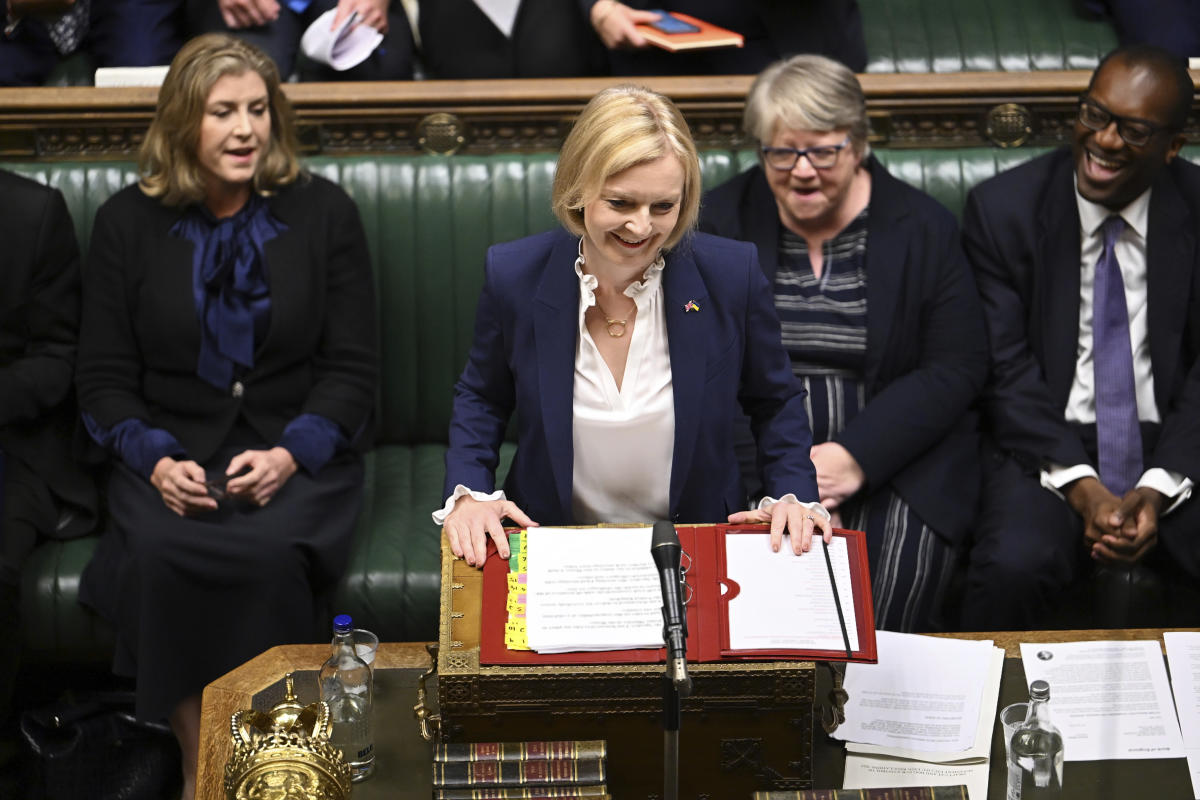
LONDON (AP) — British Prime Minister Liz Truss will announce Thursday how her new government plans to ease the burden of soaring energy bills that have left people and businesses across the U.K. facing a bleak winter.
Truss is due to make a statement in the House of Commons and is expected to impose a cap on bills that are skyrocketing because of Russia’s invasion of Ukraine and the economic aftershocks of COVID-19 and Brexit.
The announcement, on Truss’s second full day in office, comes after a summer in which the government refused to say how it would respond. Former Prime Minister Boris Johnson was not able to make major decisions after announcing in July that he would resign. Truss, who won the Conservative Party contest to replace Johnson as leader, declined to announce her plans before she was in office.
Truss, a free-market conservative, has said she favors tax cuts over handouts, but has been forced to act by the scale of the crisis. She is expected to cap domestic energy bills, which otherwise will hit 3,500 pounds ($4,000) a year for the average household next month, triple the cost of a year ago.
Cabinet minister Simon Clarke said Truss would announce “a lasting settlement that provides both comfort and clarity for both households and businesses.”
“This is a major attempt to draw a line and provide energy certainty for everybody in this country about energy usage in the medium term,” he told the BBC.
The cost of capping prices could exceed 100 billion pounds ($116 billion), but Truss has rejected opposition calls to impose a windfall tax on oil companies that have pocketed hefty profits because of the soaring prices. The opposition Labour Party says that means British taxpayers will have to foot the bill.
Labour energy spokesman Ed Miliband accused Truss of rejecting a windfall levy “purely on the basis of dogma.”
Truss said Wednesday that she would set out a plan to help with the immediate prices crisis so that people “are able to get through this winter,” as well as measures to bolster Britain’s long-term energy security.
The invasion of Ukraine has caused an energy crisis across Europe. Russia has choked off the supplies of cheap natural gas that the continent depended on for years to run factories, generate electricity and heat homes
Britain imports most of its natural gas — though largely from Norway. not Russia — and so is vulnerable to shifts in global prices.
The U.K. has dramatically increased the amount of energy generated by wind power in recent years, and plans to build more nuclear power stations.
Truss is also likely to greenlight more oil and gas extraction from the North Sea and end a ban on fracking in Britain. Both measures will be condemned by environmentalists, who worry Truss may backtrack on the U.K.’s legally binding commitment to reduce carbon emissions to net zero by 2050.
Truss says she supports the net zero commitment but it should not come at a huge cost to people and businesses




